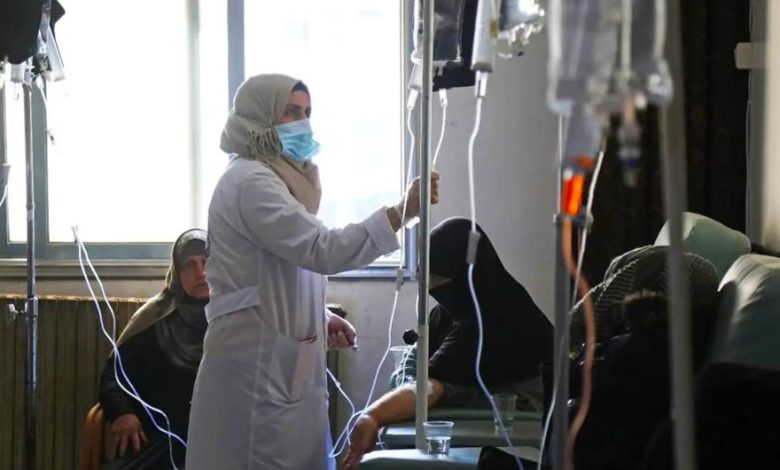
WHO: Chronic diseases are responsible for 75% of Syria’s deaths
The World Health Organization (WHO) Regional Directorate, Hanan Balkhi, said that the chronic diseases are one of the main factors for almost 75% of deaths across Syria.
Balkhi said in a statement following her meeting with officials in Assad regime-controlled areas and northeast Syria that the health system in Syria remains extremely fragile, and only 65% of hospitals operate in conjunction with an acute shortage of equipment and tools.
The health sector in Syria is not only affected by a shortage of resources but also by the socioeconomic situation, insecurity, climate change, displacement, poverty, and food insecurity, according to Balkhi.
Balkhi added that the number of people in need of assistance is astonishing as the rates of malnutrition among children under five years and mothers have doubled, meaning that there are pockets of critical vulnerabilities present in many parts of the country.
Exacerbating the already disastrous situation is the fact that the increasing political tensions in the region threat more escalation in Syria and that almost half of the labour force in the health sector, which forms the backbone of any health system, has left the country.
Syria remains one of largest displacement crises in the world, as there are more than 7.2 million internally displaced due to the prolonged conflict and the tragic earthquake that happened on February 6, 2024.
The camps in Syria also suffer limited access to clean water, the appropriate sanitation, cholera outbreak, severe acute respiratory infections, measles, lice, and scabies over the previous two years.
Despite the hard wok by WHO and its partners to restore the health services and rehabilitation, the access to health care remains limited, according to Balkhi.
Despite more than a decade of war and the escalating and multi-layered stresses facing the Syrian people, their resilience and determination are remarkable. WHO remains committed to supporting them.
Balkhi concluded her statement by saying that failure to invest in the health of the population would only deepen instability in the country and pose threats to regional and global security, and that the lives of many are at risk, and the costs of inaction are very high.




